Lascom PLM: Perfect Product Lifecycle Management Tool for Manufacturers
Products go through a long list of steps in their lifecycle before they are approved for manufacturing and distribution. It’s a lengthy process with multiple steps to approval. There is rarely a clearly defined decision for which products should move forward and what direction they should take. The result? Manufactures find themselves investing countless hours and valuable resources into products that inevitably get rejected and never make it to market.
When a new product is developed it needs to be tested, researched, designed, sourced and checked for quality control. As manufactures transition into higher volumes of product development its normal for them to experience growing pains. However, it’s important to manage their growth before their lack of processes and organization monopolizes resources and permanently damages the business.
Lascom PLM is a Product Lifecycle Management solution that integrates into your ERP, such as Sage X3, to offer specialized support for product development. For large manufacturers of, for example, Food & Beverage or Cosmetics, Lascom becomes invaluable. It gives organizations a structured environment to formulate and develop new products, offering best practice tools at each stage to ensure that the products with the highest chance for success remain the focus. The following key features outline how Lascom PLM streamlines processes, guiding manufactures every step of the way.
1) New Project Prioritization
Lascom PLM provides tools to help determine which projects should be dismissed and which should be prioritized. Without a formalized process in place, organizations are at risk of dedicating their time and budget for New Product Development (NPD) to products that have a low chance of success. The Project Screening and Project Score-carding tools offer calculated data indicating which projects should move forward and which shouldn’t.
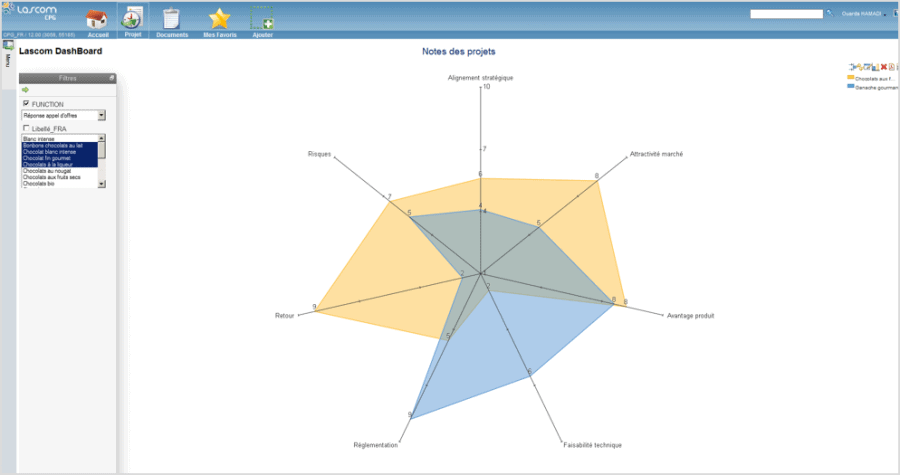
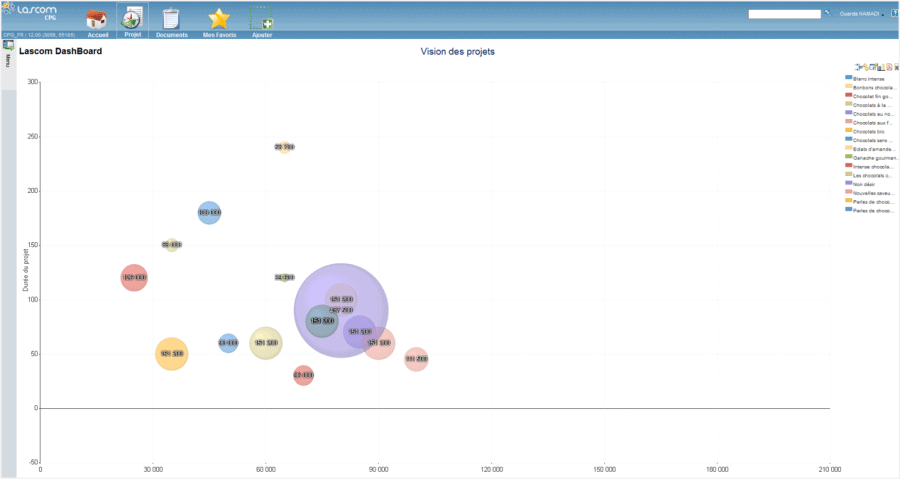
2) Formulation and Compliance
Developing product formulas is time intensive and requires a high level of precision. Formulation entails determining the raw materials, measurements, cost, and packaging requirements, all based on different usage. Furthermore, government regulations (such as food allergen labelling) vary dramatically in different countries and it’s mandatory that manufactures remain compliant in their formula and packaging. If manufactures aren’t compliant with government regulations in all the countries they ship to, whether or not it was intentional, there are serious consequences.
Lascom’s Formulation tool is a super calculator that simulates cost and promotes better precision in formulation. Cost is simulated based on raw material, packing elements and quantities, giving manufactures’ the ability to adjust the formula based on different usage (e.g. per serving, per batch). The Formulation tool’s also produces the labeling panel for packaging, giving it the edge of incorporating marketing, labeling, excel and formulation all into one tool.
In addition to the formulation tool, manufacturers can use Master Product Templates to automatically generate documents that are pre-established to meet requirements, such as including the language or food label warnings. The multilingual feature built into Lascom’s templates ensures that businesses have the ability to streamline the production of documentation, effectively reducing the margin for error and improving time to market.
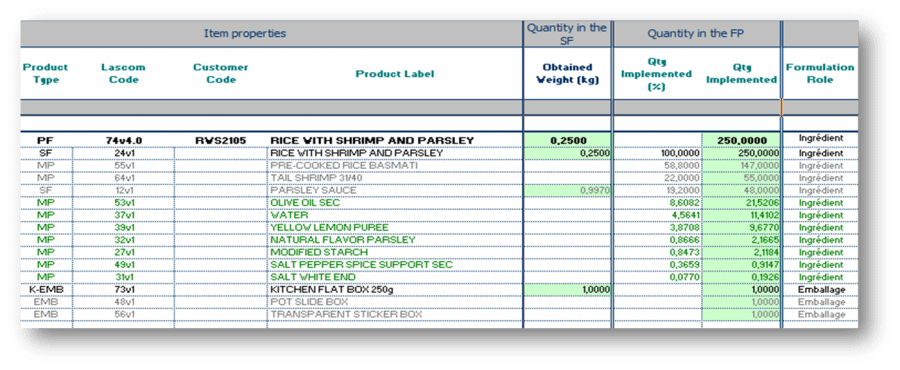
3) Package Design
Package design is one of the most important stages in the marketing of a new product. Even if manufacturers send the best product to the market, if the package is poorly designed it won’t grab the attention of the consumer, setting the product up for failure. Lascom’s packaging collaboration and version comparison tools allow manufactures (either internally or with clients) to mark up and review packaging. Pinpoint problem areas and add comments for what needs to be changed directly in the PLM, initiating a design process that is both faster and more collaborative.
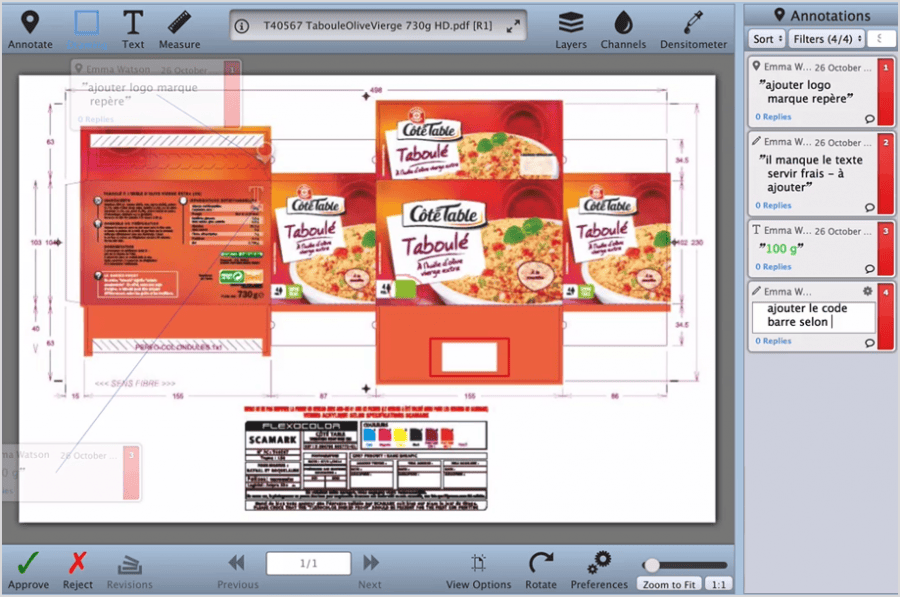
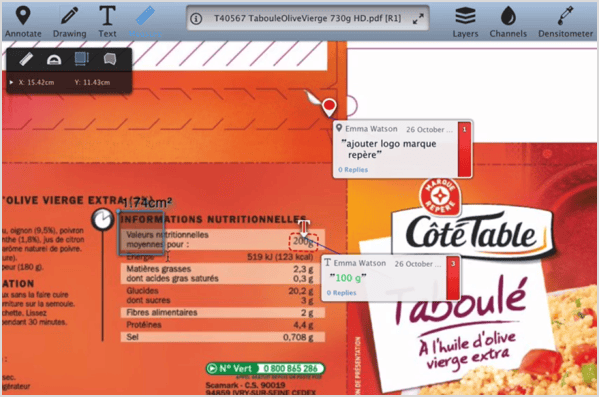
4) Procurement
Traditionally information requested and returned from suppliers has to be manually entered into the system which takes time and leaves room for error. Request for Quote (RFQ) and Request for Proposal (RFP) can be submitted directly within Lascom’s PLM, ensuring requests are always linked to projects and information is easily tracked. Suppliers enter requested information directly into the Supplier Portal, which automates the process and reduces time in the procurement cycle.
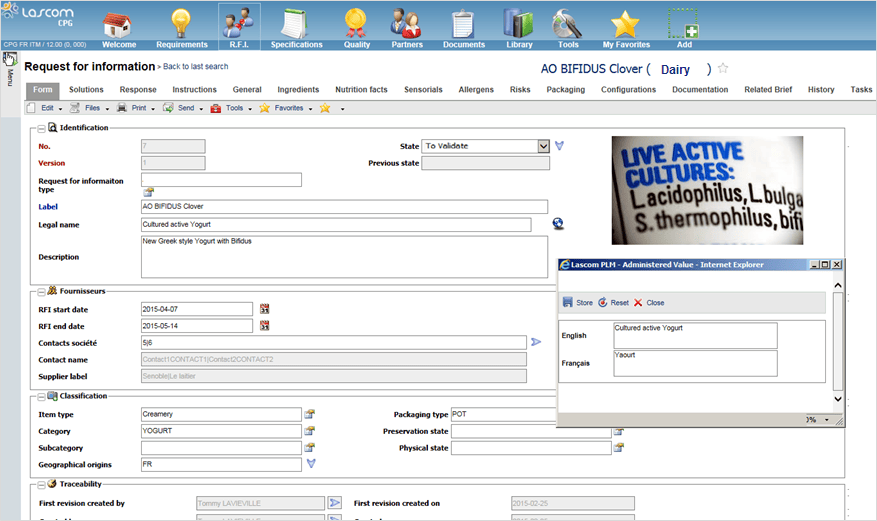
5) Quality Control
Prior to going to market it is essential to verify the quality of new products. This entails ensuring that the specifications of the product are met (e.g. organic or kosher) as well as government regulations.
Lascom PLM offers a variety of features for quality control. Use Sanitary Alerts to ensure that raw materials or semi-finished products are compliant with specified criteria. If material doesn’t meet quality requirement, Traceability Alerts ensure that the material can be tracked and located. According to best practices and standards raw materials also need to be certified annually, which can be set up in Lascom PLM to be automatically requested. These quality features, in combination with Lascom’s Master Product Templates, will ensure that the product that is going to market is exactly what it should be.
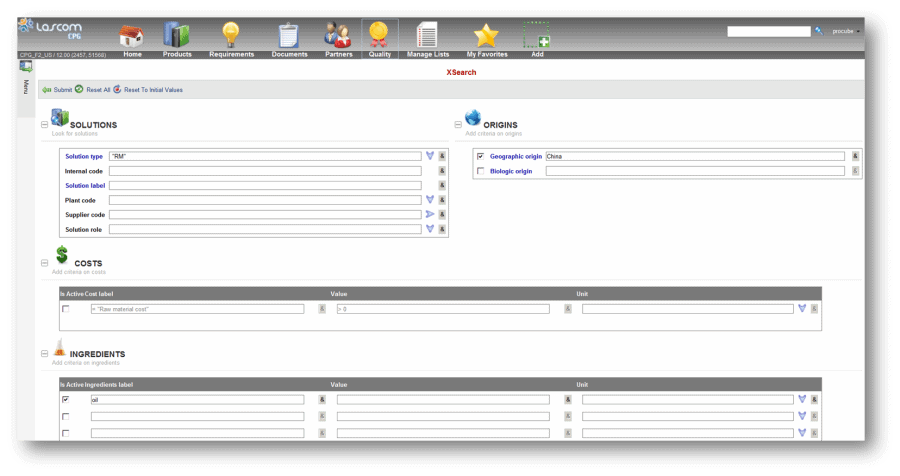
For more information visit the Lascom product page: https://www.theanswerco.com/solution/lascom-plm/
